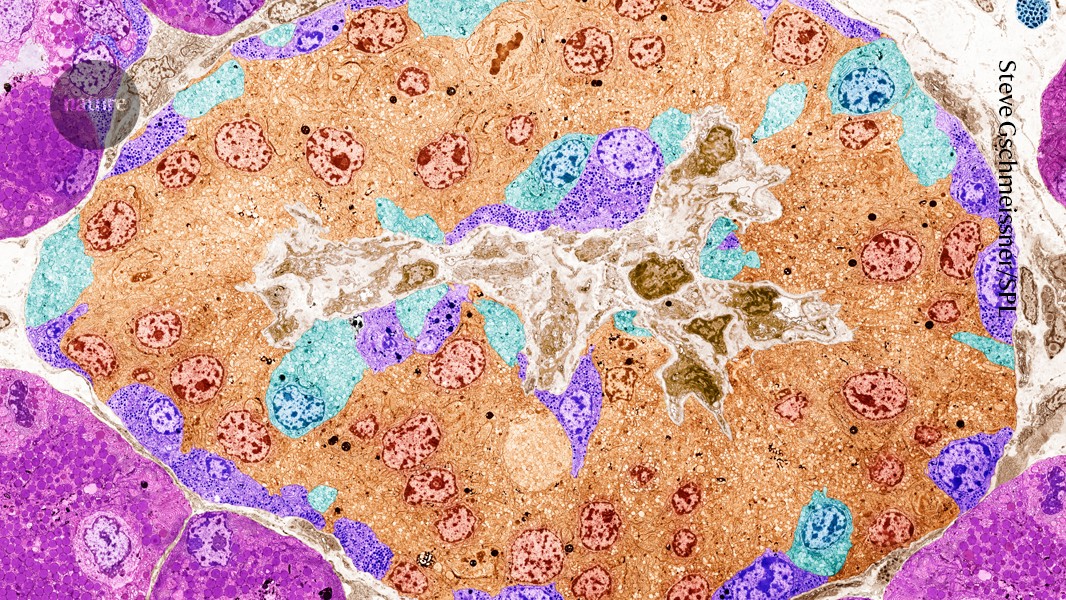
"In a medical first, researchers report that they have implanted CRISPR-edited pancreas cells into a person with type 1 diabetes. The cells pumped out sugar-regulating insulin for months - without the need for the recipient to take immune-dampening drugs, thanks to gene edits that allowed the cells, collected from a deceased donor, to evade detection by the recipient's immune system."
"The study, orchestrated by the firm Sana Biotechnology in Seattle, Washington, raises hopes of an enduring cure for an autoimmune disease that consigns millions of people to a life of strict monitoring and dependence on injected insulin. "The preliminary data has definitely lifted the spirits of our community - and it's a really elegant approach", says Aaron Kowalski, the chief executive of Breakthrough T1D, a non-profit organization in New York City formerly known as JDRF."
"The ultimate goal is to apply immune-cloaking gene edits to stem cells and then direct their development into insulin-secreting islet cells. Unedited islets made from stem cells have already shown promise for treating type 1 diabetes in a small trial, according to results published in June. But some independent research groups have failed to confirm that the Sana method confers immune-skirting abilities on edited cells."
CRISPR-edited pancreatic cells from a deceased donor were implanted into a person with type 1 diabetes and secreted sugar-regulating insulin for months without immune-dampening drugs because gene edits allowed the cells to evade the recipient's immune system. Sana Biotechnology coordinated the procedure in Seattle with the goal of applying immune-cloaking edits to stem cells to generate insulin-secreting islet cells. Unedited stem-cell-derived islets have shown promise in a small June trial. Some independent research groups have not replicated the immune-evasion findings. Only one person received a low dose for a short time, so insulin independence remains unproven.
Read at Nature
Unable to calculate read time
Collection
[
|
...
]